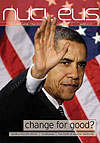Due to a shortage of human ova for embryonic stem cell research, animal-human hybrid embryos were portrayed as vital to finding cures for conditions like Alzheimer's disease. Recent research cast serious doubt on this assertion from last year's Human Fertilisation and Embryology Bill debate.
Scientists inserted human DNA into egg cells from cows, mice and rabbits. But the hybrid embryos did not correctly express genes vital for pluripotency (capacity to develop into different cell types).
'For those trained in the science, this is not news, but instead a completed fate that was known from the beginning', commented leading US stem cell scientist James Sherley. Sir Ian Wilmut, who cloned Dolly the sheep, moved from animal-hybrid embryos in favour of induced pluripotent stem cells. These adult stem cells, 'made to act like embryonic ones', avoid compromising human dignity.
Funding has also been a problem in the UK. Two of the three licensed labs failed to secure finance; the third has not yet tried. Stephen Minger (King's College London), who has held a licence for over a year, said, 'What we have to work out now is whether it's a good use of our scant resources to put our efforts into resubmitting a proposal - which is incredibly time-consuming.'
- nature.com 2009; 3 February
- cmf.org.uk 2009; 3 February
- news.bbc.co.uk 2009; 13 January































